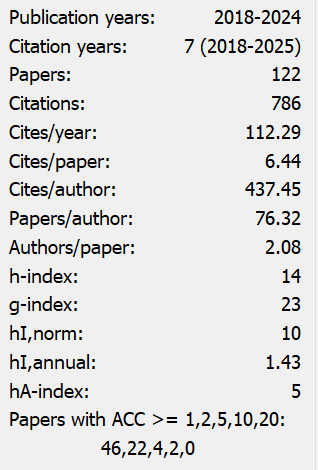Research on the Influence of Green Marketing on Consumers' Purchase Intentions — A Case Study of Li-Ning's Footwear and Apparel Products
Abstract
Green marketing, by promoting environmentally friendly products and the concept of sustainable development, meets consumers’ environmental needs and helps enterprises gain a competitive edge in the marketplace. This study uses Li-Ning’s footwear and apparel products as a case to analyze the impact of green marketing strategies on consumers’ purchase intentions. Based on 842 valid survey responses and quantitative analysis, the results show that perceived value, consumer attitude, and motivation have a significant positive impact on purchase intention, whereas perceived risk has a significant negative effect. It is recommended that enterprises enhance product perceived value, raise consumers’ environmental awareness, stimulate and satisfy intrinsic motivation, reduce perceived risk, and strengthen brand social responsibility in order to improve market competitiveness.
References
[2] Ding, W. (2019). Analysis of Consumer Behavior in Social E-commerce Based on the Theory of Planned Behavior. Business Economics Research, (3), 50–53.
[3] Liu, W., Wang, X., & Yan, Y. (2019). Metacognitive Experience: An Important Theoretical Foundation in Consumer Behavior Research. Foreign Economics & Management, 41(11), 86–98. https://doi.org/10.16538/j.cnki.fem.20191008.001
[4] Chen, X. (2024). The Impact of Social Media Marketing on Consumers’ Green Purchase Intentions—A Chain Mediating Effect Based on Green Knowledge Acquisition and Green Brand Image. Business Economics Research, (19), 51–54.
[5] Lin, Z., & Xu, H. (2024). A Study on Green Marketing Decision-Making Considering Financial Constraints and Retailers’ Fairness Concerns. Operations Research and Management, 33(9), 63–70.
[6] Ruan, Z., & Hu, Y. (2025). The Impact of Perceived Value of Cross-Brand Collaboration Products on Purchase Intention—A Case Study of G Tea Brand. Northern Economy and Trade, (6), 68–72, 96.
[7] Tang, X., Li, P., & Yang, Y. (2025). The Influence of Consumers' Environmental Awareness and Sustainable Fashion Cognition on Purchase Intention. Fashion Designer, (7), 102–108. https://doi.org/10.20100/j.cnki.cn11-4548/ts.2025.07.005
[8] Tang, J. (2015). A Study on Information Search Behavior of Mobile Terminal Consumers Based on Intrinsic and Extrinsic Motivation. Modern Economic Information, (17), 145.
[9] Zhang, J. (2025). A Study on Purchase Intention of Prefabricated Housing Based on the Perceived Benefit–Perceived Risk Framework. Business Management, (2), 66–73. https://doi.org/10.16517/j.cnki.cn12-1034/f.2025.02.003
[10] Quan, W., & Huang, X. (2023). The Impact of Perceived Corporate Social Responsibility on Brand Loyalty among Customers of Home Inn in Guilin, Guangxi—Mediated by Brand Attachment. Western Tourism, (11), 93–96.


This work is licensed under a Creative Commons Attribution 4.0 International License.
Copyright for this article is retained by the author(s), with first publication rights granted to the journal.
This is an open-access article distributed under the terms and conditions of the Creative Commons Attribution license (http://creativecommons.org/licenses/by/4.0/).


























